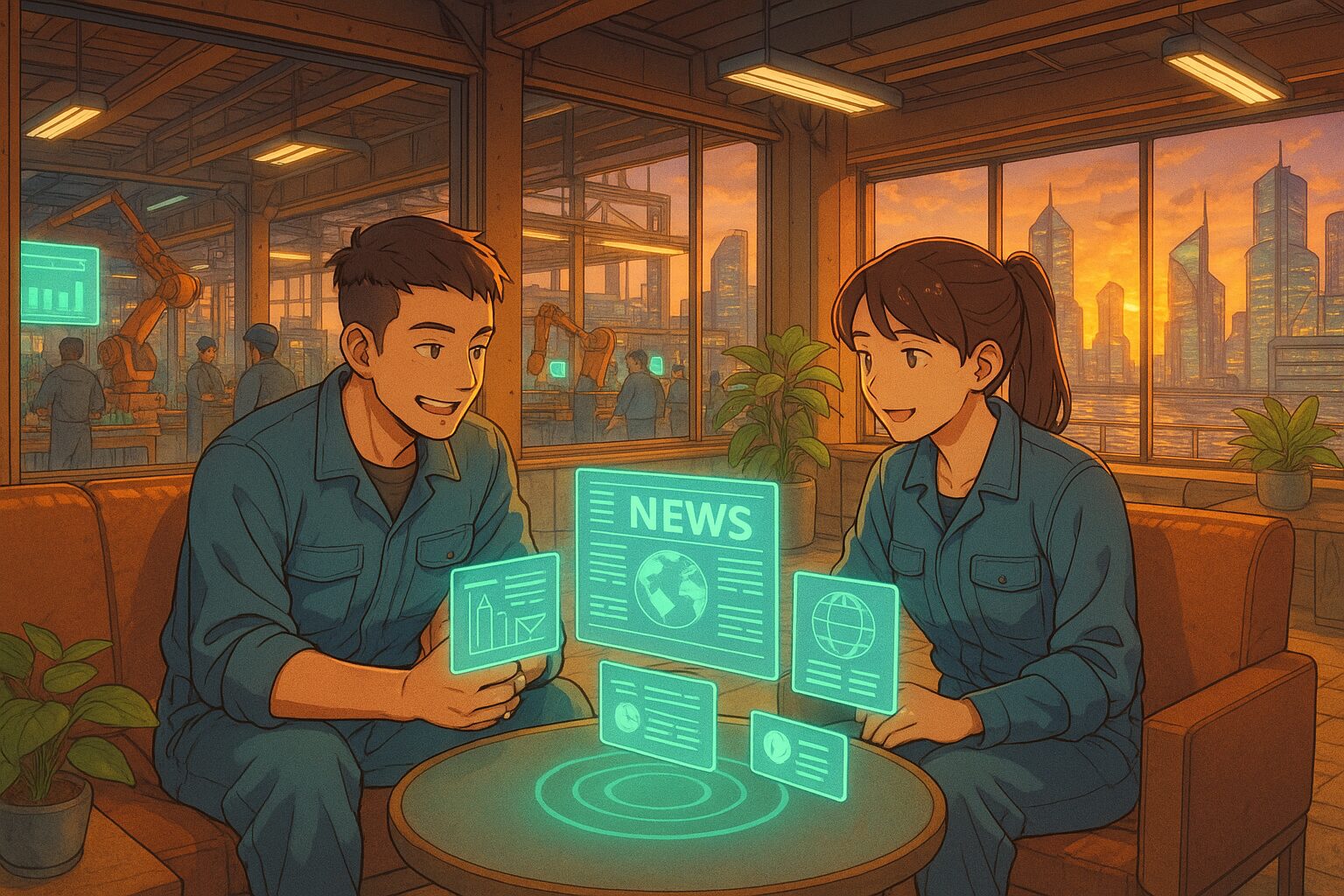A New Metric of Information: How Will It Impact Our Choices?
In the modern world, we are drowning in an ocean of information. Every day, we encounter vast amounts of data. However, the question of how to measure the value of that information remains unresolved. The recently introduced concept of “Significant Distinction” is gaining attention as a new metric for assessing the objective value of information. If this trend continues, how will our relationship with information change?
1. Today’s News: What is Happening?
Source:
https://answersresearchjournal.org/genetics/significant-distinction/
Summary:
- A new metric called “Significant Distinction” has been proposed to evaluate the objective value of information.
- This metric is expected to be intuitive and easy to understand as a means of measuring the complexity of information.
- Researchers are exploring how this metric may affect our daily lives.
2. The Three “Structures” Behind It
① The “Structure” of the Issues We Face Today
We are exposed to a massive amount of information daily, but the criteria for evaluating its value and reliability are vague. This problem has become apparent due to the proliferation of the internet and the deluge of digital information.
② How It Connects to Our Lives
If we can accurately measure the value of information, we can make better choices. For instance, this metric would be helpful when purchasing products or assessing the reliability of news.
③ Us as “Choosers” of Information
We are required to have the ability to judge which information to believe and which to ignore. Utilizing the new metric presents an opportunity to reevaluate our relationship with information.
3. IF: What Will Happen If This Continues?
Hypothesis 1 (Neutral): A Future Where Evaluating Information’s Value Becomes Standard
Directly, using the new metric to evaluate information will become commonplace. Eventually, methods and standards for information gathering will be standardized. However, solely relying on value evaluation may lead to a loss of creative ways to perceive information.
Hypothesis 2 (Optimistic): A Future Where the Quality of Information Greatly Advances
With the widespread adoption of the new metric, the quality of information will improve, and more reliable sources will emerge. Consequently, a society where we can make more effective decisions will be realized. This may lead to enhanced information literacy and an overall increase in society’s intellectual level.
Hypothesis 3 (Pessimistic): A Future Where the Diversity of Information Declines
If information evaluation based on metrics progresses, homogenized information may become mainstream, risking the neglect of diverse perspectives. This could lead to a loss of information diversity and a decrease in opportunities for critical thinking.
4. What Choices Do We Have Now?
Actions
- To view information from multiple angles, consciously collect information from different perspectives.
- Pursue learning to develop the skills to independently assess the reliability of information.
Thought Tips
- Consider reevaluating your values as a good opportunity when assessing the value of information.
- Maintain a critical understanding of the new metric without taking it at face value.
5. What Would You Do?
- What contributions could you make to improve information literacy across society?
- What are your trusted sources of information? How do you determine that standard?
- If the new metric is introduced, how would your information selection methods change?
6. Conclusion: Preparing for the Future to Make Choices Today
Thinking about our future relationship with information is the first step toward enriching our lives. What kind of future have you envisioned? Please share with us through SNS quotes or comments.









